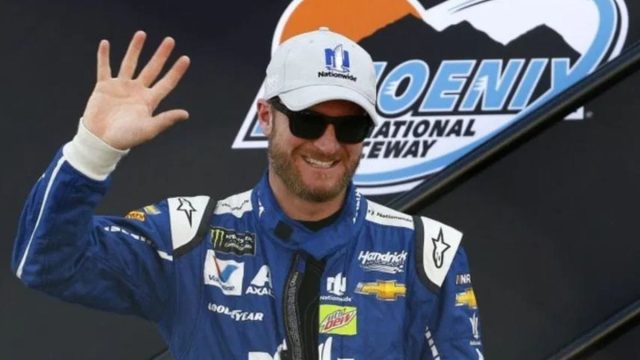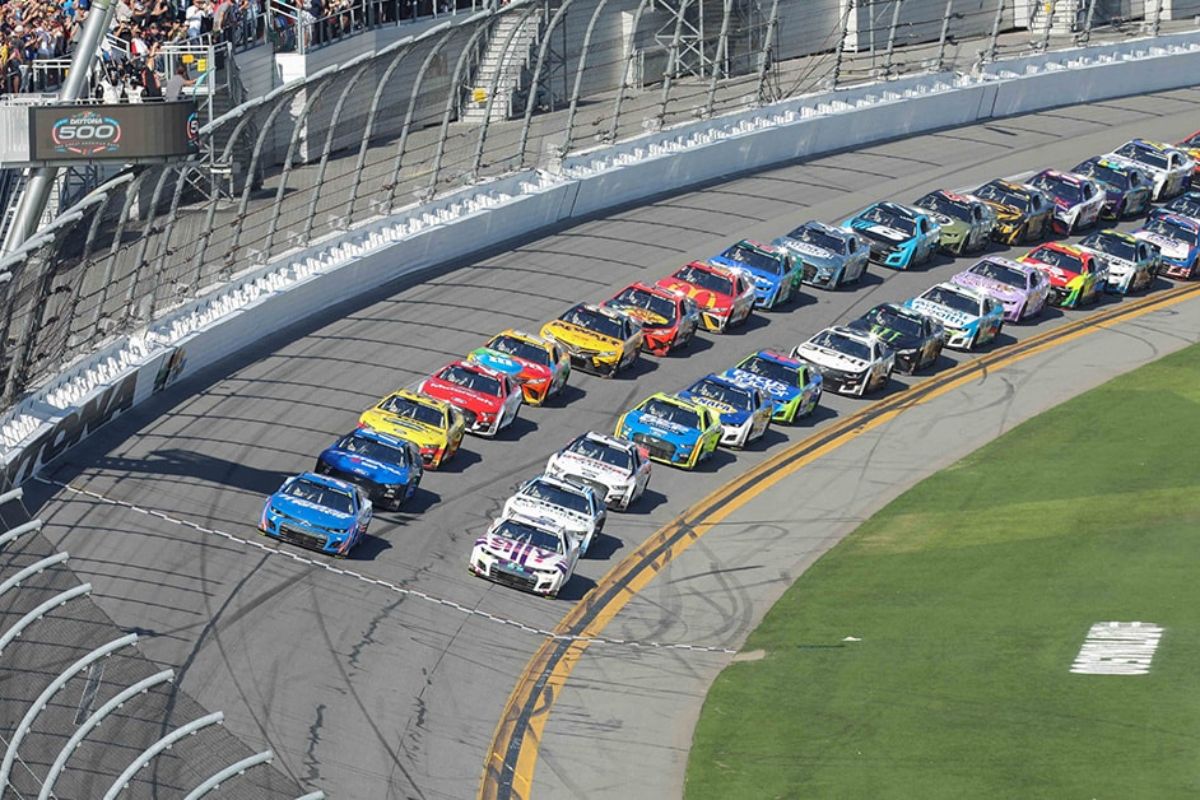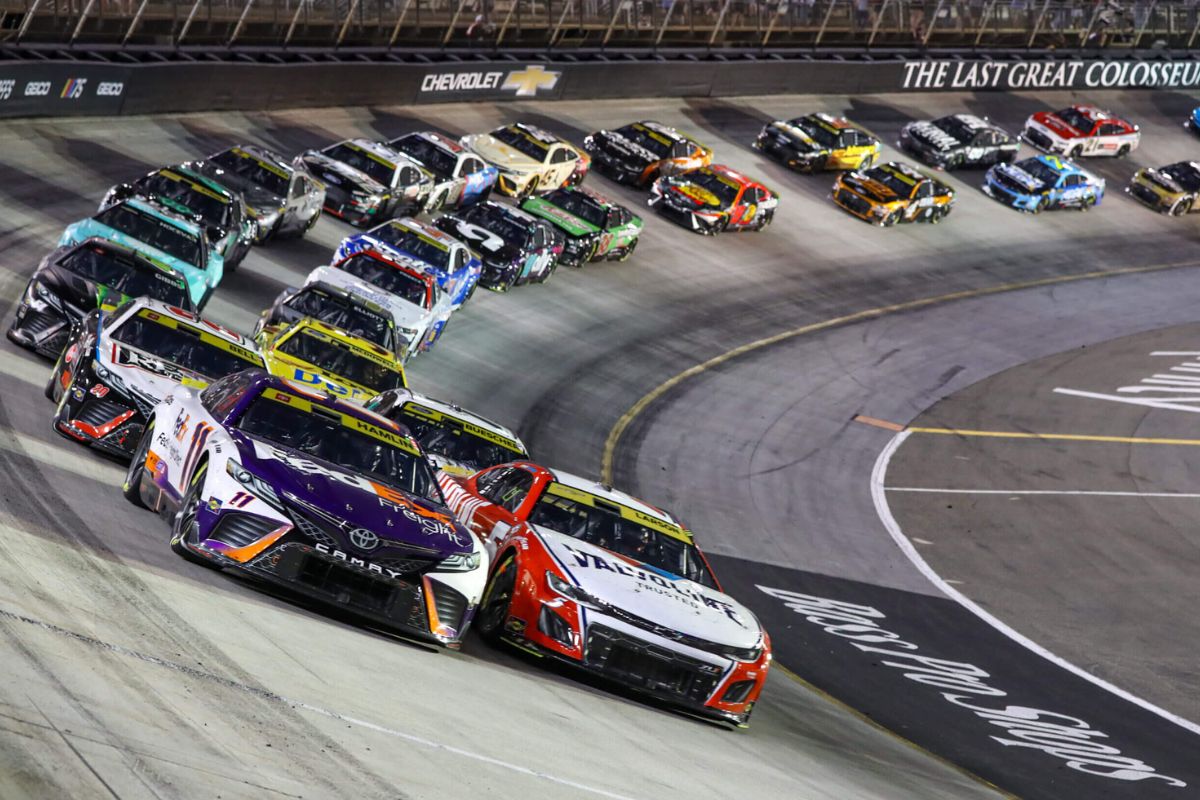Dale Jr. Calls Out Fans: Dale Earnhardt Jr.‘s recent comments regarding fan criticisms of NASCAR’s race start times highlight a growing tension between audience expectations and the realities of modern broadcasting. As he points out, the interplay of commercial interests and network scheduling greatly influences these decisions, suggesting that fan discontent may overlook the complexities involved. By advocating for constructive dialogue rather than criticism, Earnhardt Jr. emphasizes the necessity of unity in steering NASCAR’s evolving landscape. This raises questions about how fan engagement can be reconciled with the commercial demands of the sport’s future.
Key Highlights
- Dale Earnhardt Jr. defends NASCAR, attributing race start time criticisms to the commercial landscape rather than the organization’s decisions.
- He emphasizes that race timing changes are influenced by broadcasting rights and network programming needs.
- Earnhardt Jr. encourages fans to provide constructive feedback instead of negativity towards NASCAR’s scheduling decisions.
- He highlights the importance of fan support for the sport’s growth and future viability.
- Dale Jr. calls for unity among fans and stakeholders to navigate the challenges facing NASCAR.
Evolution of NASCAR Race Start Times
Over the years, the evolution of NASCAR race start times has sparked considerable debate among fans and drivers likewise. Historically, Cup Series races typically commenced at 12 p.m. or 1 p.m., allowing for a structured viewing experience that concluded in the early afternoon. This scheduling not only catered to the preferences of fans but also facilitated family gatherings and social activities following the races.
However, the shift to later start times, primarily around 3 p.m., has drawn criticism and nostalgia from both participants and spectators. The change to later start times can be attributed to numerous factors, including television ratings and market dynamics. As NASCAR sought to broaden its audience and improve viewership, aligning race times with prime television slots became a tactical priority.
Nevertheless, this adjustment has led to a disconnect with traditional fans who valued the earlier schedule for its convenience and predictability. Statements from prominent drivers, such as Kyle Larson, highlight a broader sentiment within the racing community. Larson’s remark, “I miss the early race starts,” covers a growing frustration that resonates with many longtime fans.
The implications of these later start times extend beyond mere scheduling; they affect fan engagement, attendance, and the general atmosphere of race weekends.
Dale Earnhardt Jr. Defends NASCAR
Dale Earnhardt Jr. has emerged as a vocal supporter of NASCAR amid rising criticism regarding race start times. Following a recent incident where the Michigan race was interrupted after 51 laps and rescheduled for 11 a.m. ET the next day, fans expressed their frustration over the altered timing, invoking nostalgia for earlier race starts.
However, Earnhardt Jr. is of the belief that the responsibility for race start times does not rest with NASCAR, nor with drivers like Kyle Larson, or even the fans themselves.
As the commercial landscape of racing has evolved, NASCAR has adapted to new revenue models that include pre-race events and in-race advertising. This shift has greatly impacted scheduling decisions, leading to a situation where the organization has relinquished direct control over race start times.
Earnhardt Jr. emphasizes that the criticisms levied against NASCAR fail to acknowledge this intricate reality. His defense highlights the necessity for fans to understand that the decision-making process regarding race timings is influenced by broader commercial interests and not merely a matter of preference.
In urging fans to reconsider their criticisms, Earnhardt Jr. advocates for a more detailed understanding of the dynamics at play. He calls for patience and recognition of the evolving nature of the sport, which must balance tradition with the demands of modern-day entertainment.
As NASCAR continues to navigate these changes, Earnhardt Jr.’s support highlights the importance of constructive dialogue within the fan base.
Impact of Broadcasting Rights on Race Timings
Influencing the scheduling of NASCAR races, broadcasting rights have become a essential factor in determining race start times. The recent $7.7 billion deal signed with FOX Sports, NBC, Warner Bros. Explore, and Amazon highlights the substantial financial stakes involved, marking a 40% increase from the previous media rights agreement. This considerable investment emphasizes the power that broadcasters now wield over NASCAR’s operational decisions, particularly regarding race timings.
As Dale Earnhardt Jr. pointed out in a recent podcast, fans often misattribute blame for race start times to NASCAR itself. He stressed that the organization does not control these decisions; rather, they are dictated by the networks that hold broadcasting rights. This situation reflects a broader trend in sports, wherein media entities are increasingly shaping the conditions under which fans engage with their favorite events.
“The start times are not chosen by NASCAR. Quit with this NASCAR Bunch of assh**les, quit with that. I give NASCAR a hard time when I feel like they deserve it, but they don’t deserve the credit for this. The start times are predicted by and chosen by networks and they influence that mostly.”-(dale jr.)
The implications of these broadcasting agreements extend beyond mere scheduling. They highlight a shift in the balance of power within the sport, as networks prioritize their programming needs, potentially at the expense of fan preferences and traditional race day experiences.
Consequently, this dynamic may generate frustration among fans who feel disconnected from the sport’s heritage, leading to increased questioning and criticism of NASCAR.
As the sport navigates these complexities, understanding the influence of broadcasting rights on race timings becomes essential for all stakeholders, including fans, teams, and sponsors. This awareness can create a more detailed conversation about the evolving landscape of NASCAR and its relationship with its audience.
Networks’ Influence on Race Timings
Broadcast networks wield substantial influence over race timings in NASCAR, driven by their need to improve viewership and amplify advertising revenue. This dynamic has led to a notable trade-off; NASCAR has compromised some control over race timings to accommodate the broadcasting networks’ interests.
“The TV deals are as large as they are the networks are going to want to try to maximize their advertising dollars and get all of that money back and then some more. And so they need to put these races where they feel like they’ll get the best numbers.”-(dale jr.)
The timing of races is not merely a logistical decision but a calculated approach to optimize viewer engagement. This often translates into extended pre-race programming, which can delay actual race start times. Such adjustments are designed to guarantee that networks can attract the largest possible audience, thereby amplifying advertising revenue.
To demonstrate the impact of network decisions on race timings, consider the following table:
| Race Event | Scheduled Start Time | Network Influence |
|---|---|---|
| Daytona 500 | 2:30 PM ET | Extended pre-race show |
| Coca-Cola 600 | 6:00 PM ET | Evening viewership peak |
| Bristol Night Race | 7:30 PM ET | Prime-time programming |
| Talladega 500 | 2:00 PM ET | Afternoon audience |
| Southern 500 | 6:00 PM ET | Weekend viewing increase |
Ultimately, the interplay between NASCAR and broadcasting networks demonstrates a complex relationship, where financial imperatives dictate race scheduling decisions.
Balancing NASCAR Racing and TV Scheduling
The intricate interplay between television scheduling and NASCAR racing reveals a substantial challenge in the contemporary sports landscape. As broadcasting networks prioritize viewer engagement to enhance advertising revenue, the timing of races becomes a calculated decision influenced by audience metrics. This relationship often dictates race schedules, creating a tension between the sport’s tradition and commercial interests.
Key factors informing this delicate balance include:
- Viewership Patterns: Races are scheduled at times when audiences are most likely to tune in.
- Advertising Slots: Limited slots necessitate tactical timing to optimize commercial exposure.
- Competitive Programming: Avoidance of scheduling conflicts with major events, such as the NFL, to prevent audience fragmentation.
- Network Influence: Increased financial investments from networks may restrict NASCAR’s autonomy in scheduling decisions.
- Fan Engagement: Maintaining spectator interest while adhering to commercial demands remains a vital consideration.
Dale Earnhardt Jr. emphasizes that NASCAR must navigate these complexities while working to preserve the essence of racing. The challenge lies not just in accommodating network expectations but also in ensuring that the sport continues to resonate with its fanbase.
Striking this balance is essential for the long-term viability of NASCAR, as it must adapt to the evolving landscape of sports broadcasting without sacrificing its heritage. Ultimately, the synergy between race scheduling and television demands will determine how NASCAR evolves in the face of increasing commercial challenges.
News in Brief: Dale Jr. Calls Out Fans
The evolving landscape of NASCAR race start times is shaped by complex interactions between broadcasting rights and commercial interests, necessitating a shift in fan perspectives. Dale Earnhardt Jr.’s call for constructive feedback highlights the importance of unity within the sport as it adapts to contemporary demands. A deeper understanding of these dynamics will facilitate a more supportive environment, ultimately contributing to the growth and sustainability of NASCAR in an increasingly competitive entertainment market.
ALSO READ: Dale Earnhardt Jr. Prefers Flipping Over Dad’s Fate, Supports Denny Hamlin’s Crash Views




